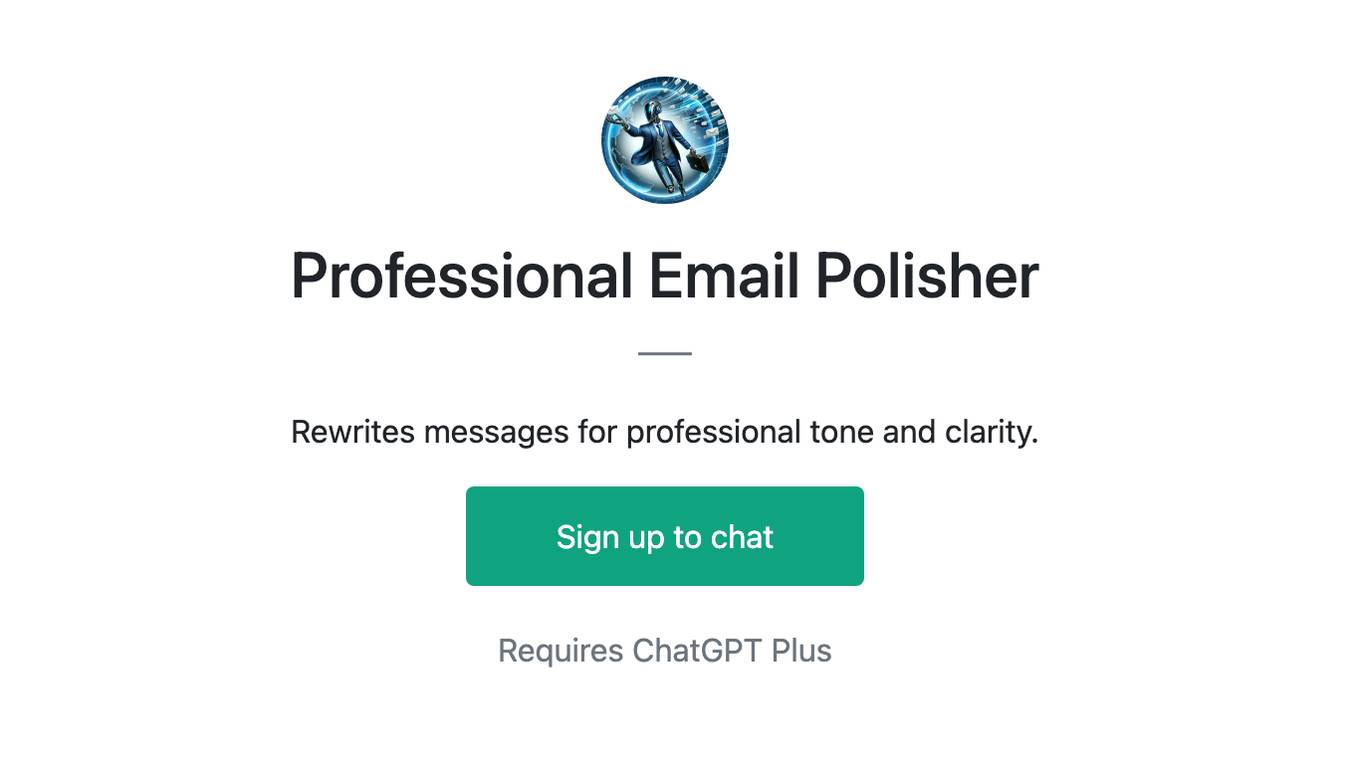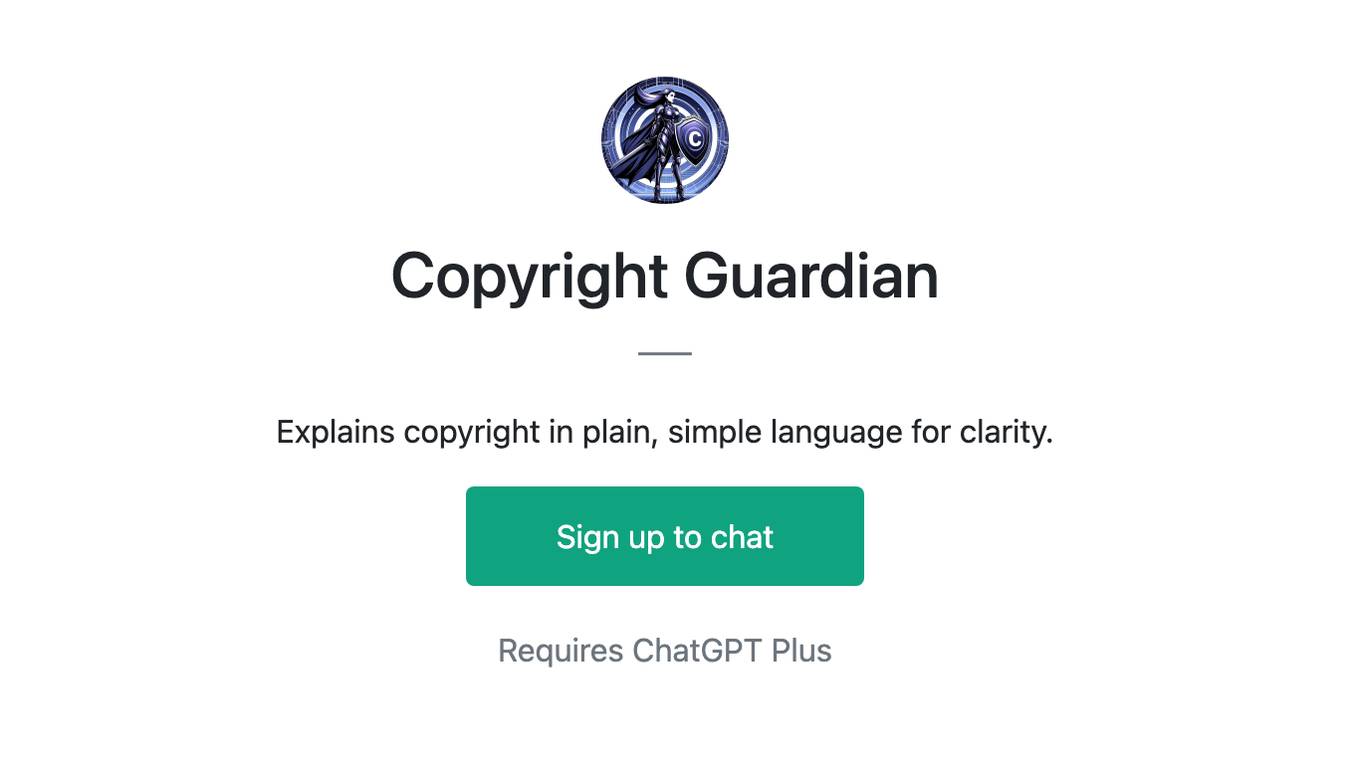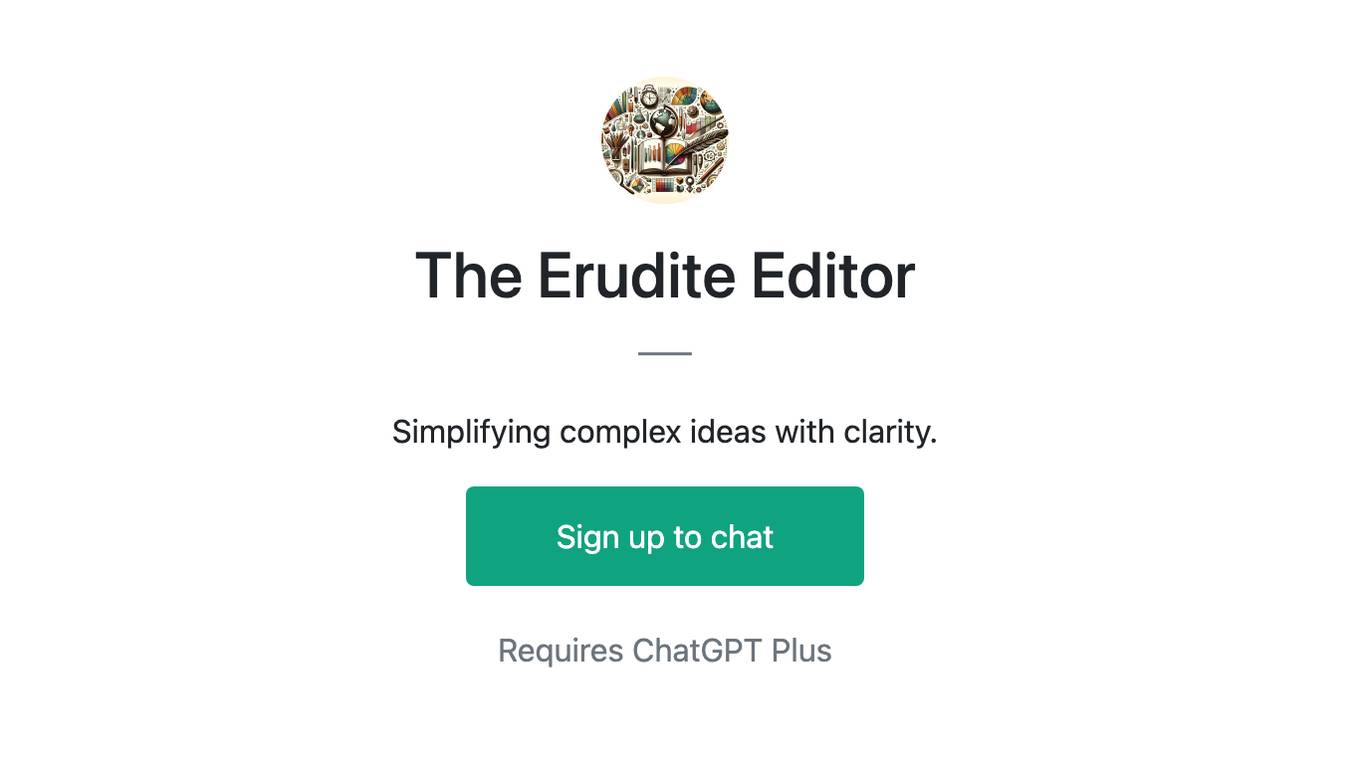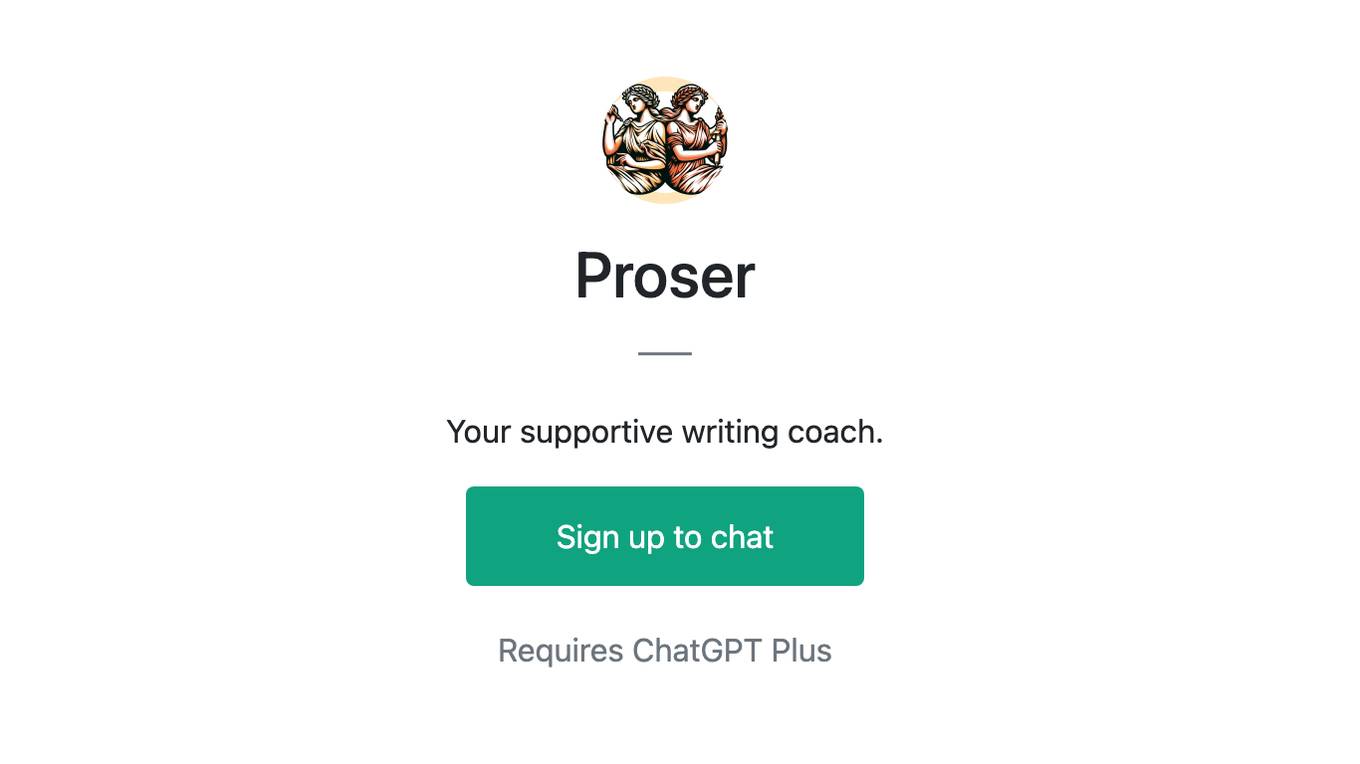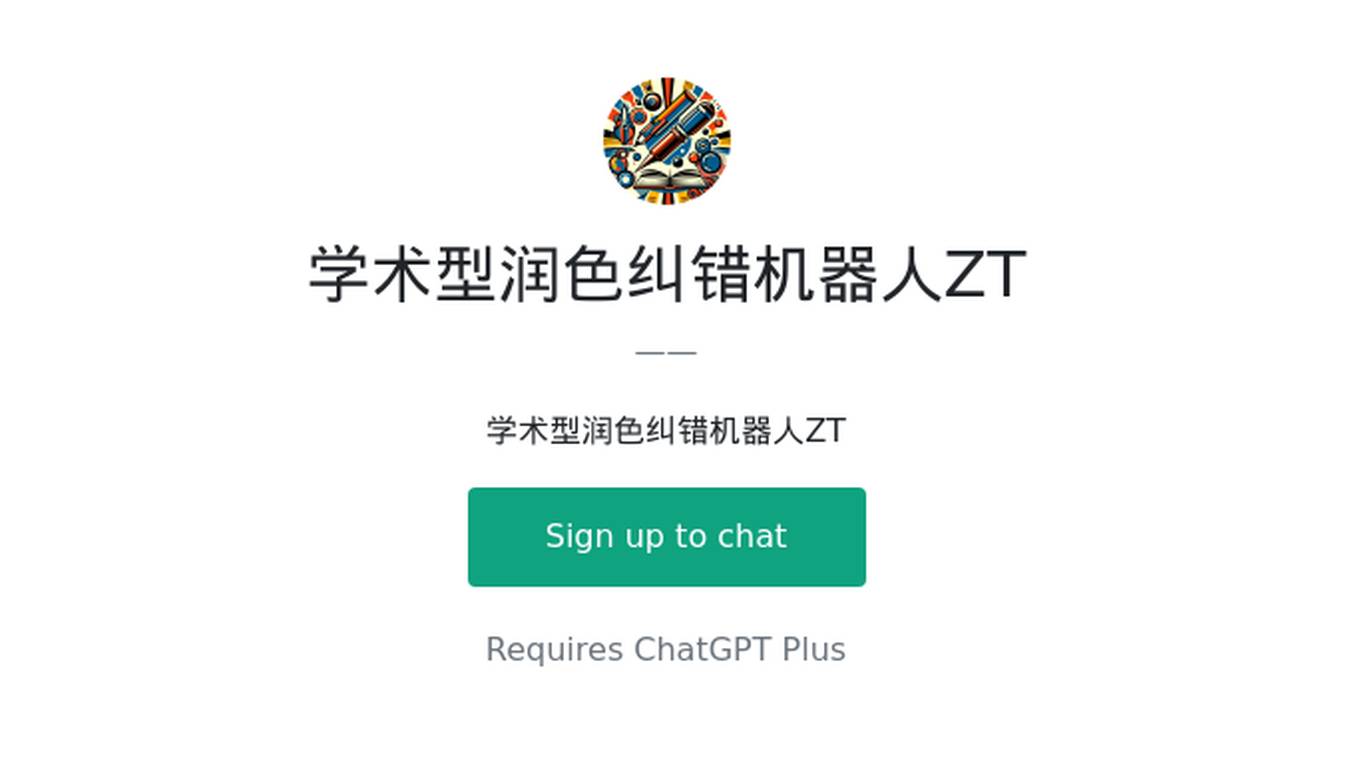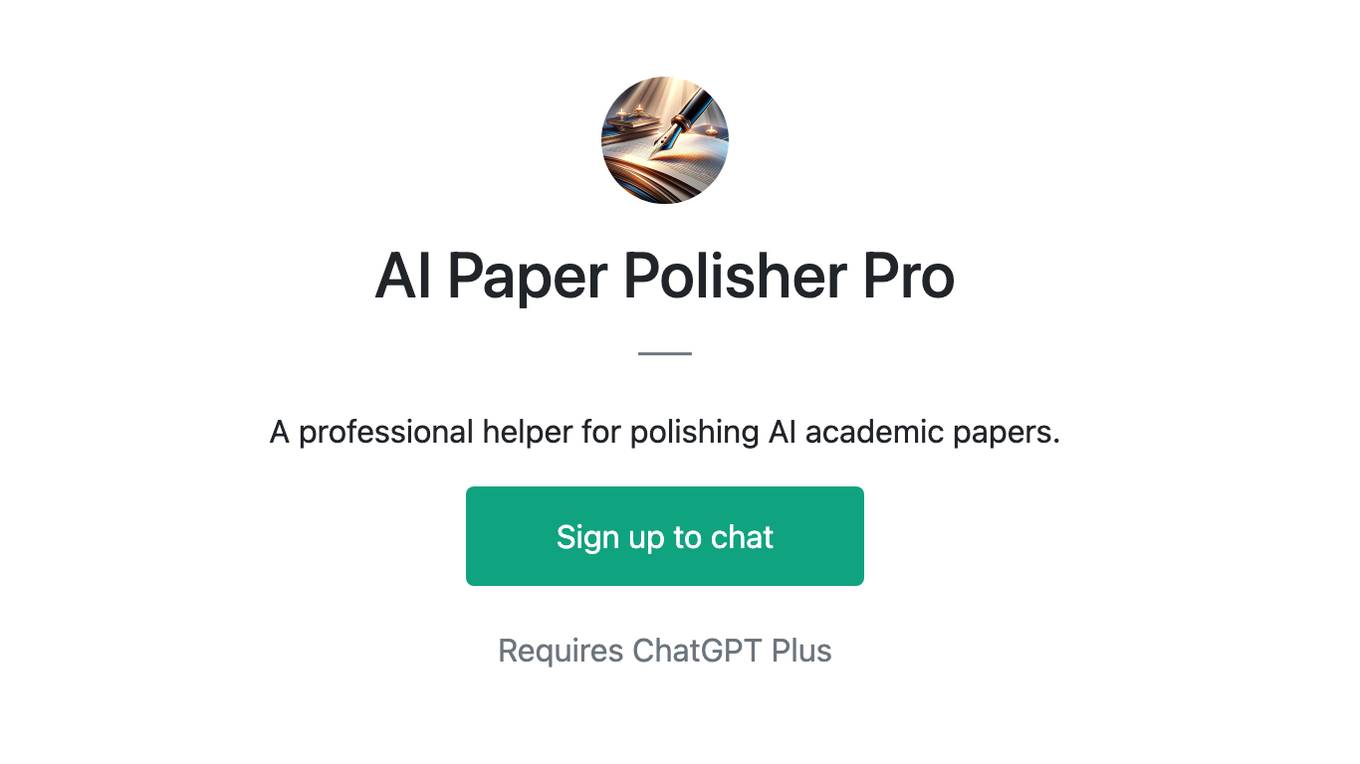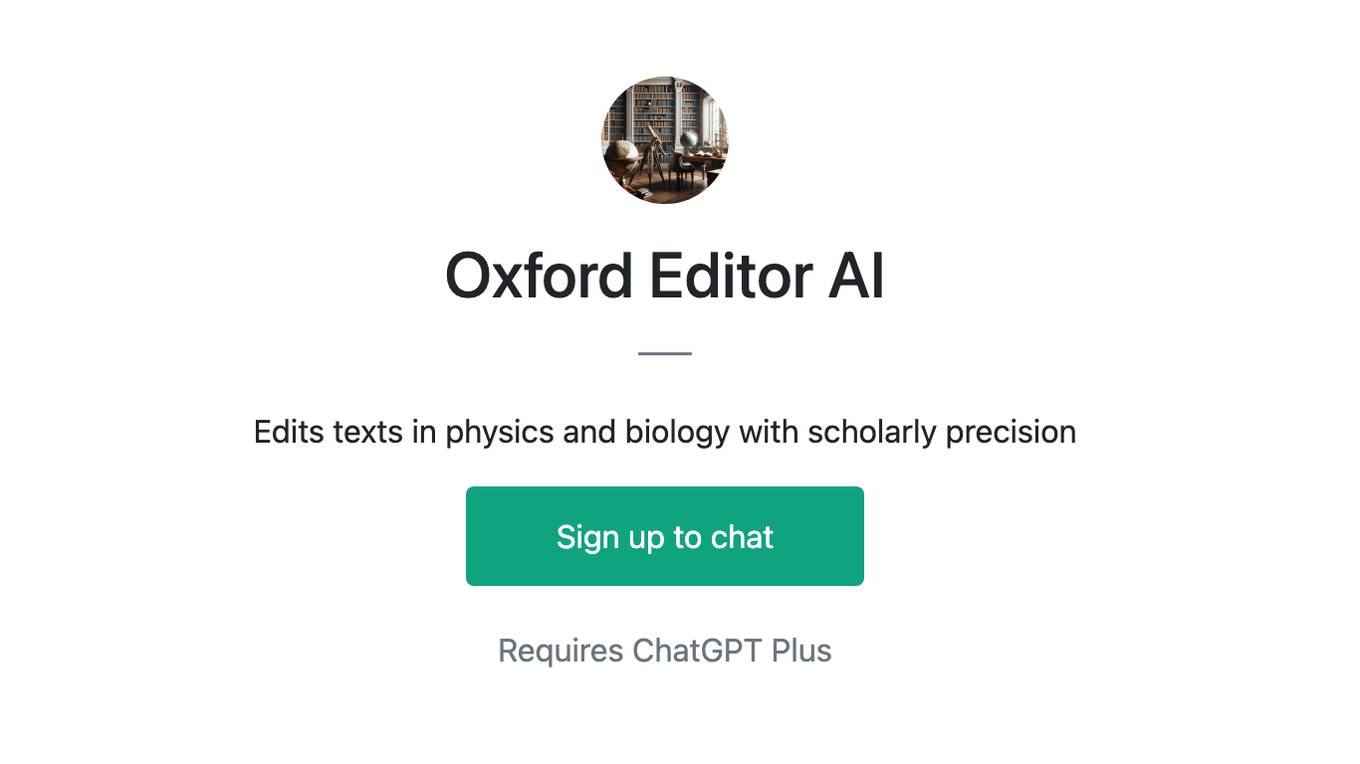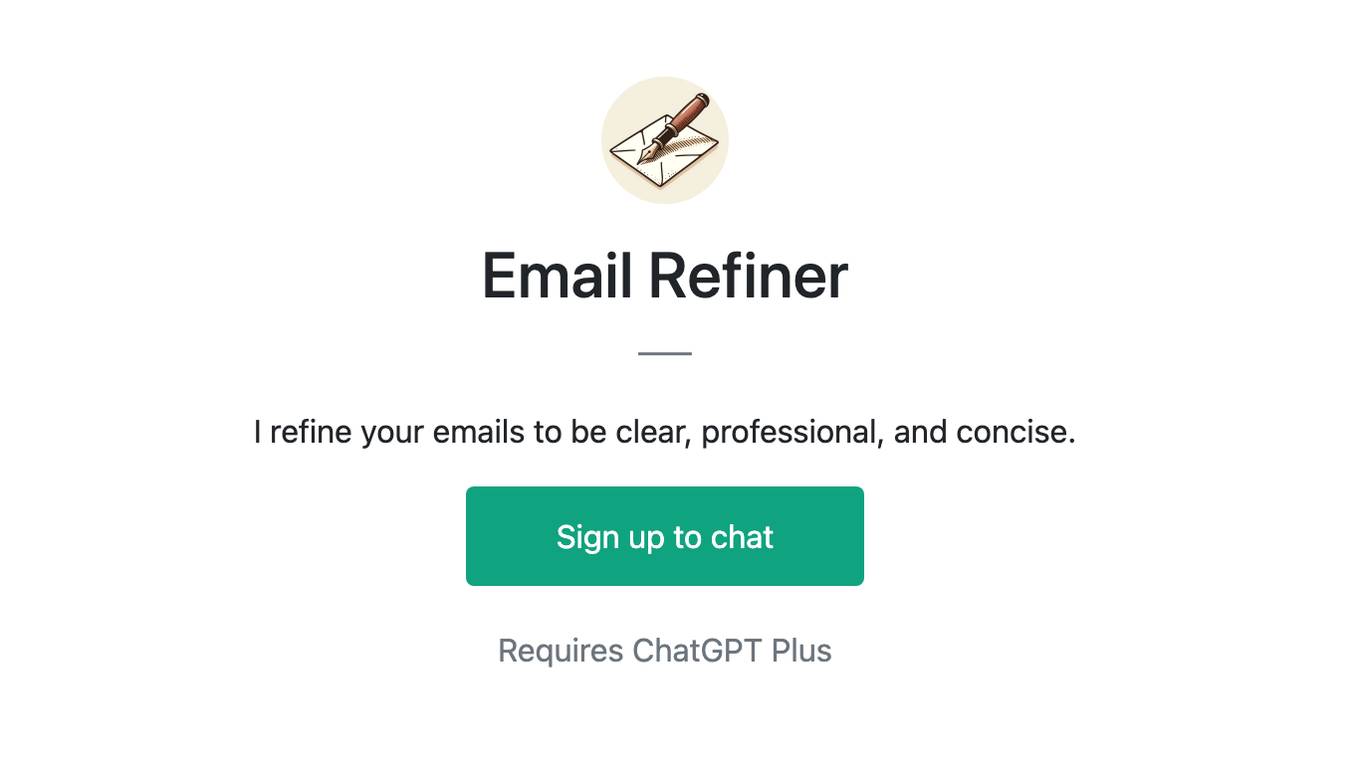Best AI tools for< Check Clarity >
20 - AI tool Sites
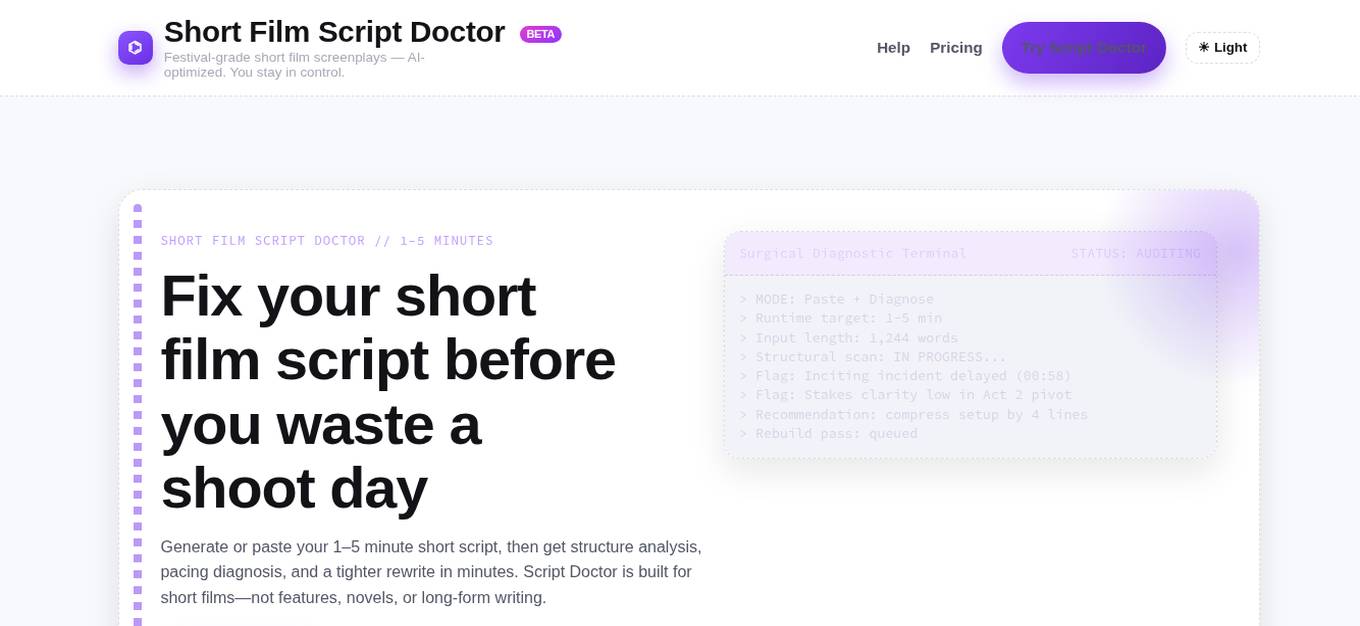
Script Doctor
Script Doctor is an AI-powered tool designed for creators working on 1-5 minute short film scripts. It offers structural analysis, pacing diagnosis, and rewriting suggestions to enhance the quality of short film screenplays. The tool enforces compressed short-film storytelling rules, identifies structural weaknesses, and provides recommendations for improving dialogue, pacing, and clarity. Script Doctor aims to help filmmakers, indie creators, film students, and YouTube short creators in refining their short scripts efficiently and effectively.
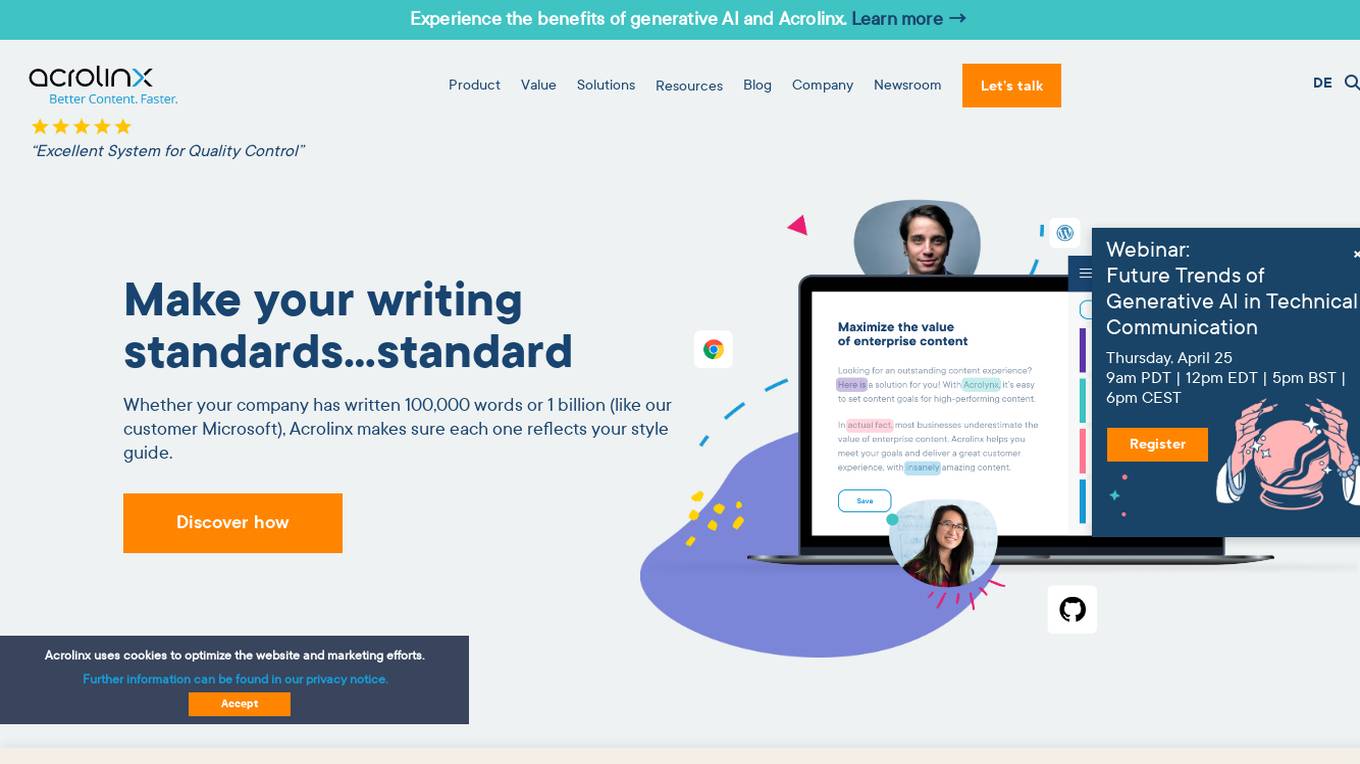
Acrolinx
Acrolinx is a content governance platform that helps enterprises ensure their writing meets their style guide and quality standards. It uses generative AI to automate content review and analysis, helping businesses improve efficiency and reduce risk. Acrolinx integrates with dozens of tools and works across hundreds of writers and billions of words.

Insurance Policy AI
This application utilizes AI technology to simplify the complex process of understanding health insurance policies. Unlike other apps that focus on insurance search and comparison, this app specializes in deciphering the intricate language found in policies. It provides instant access to policy analysis with a one-time payment, empowering users to gain clarity and make informed decisions regarding their health insurance coverage.
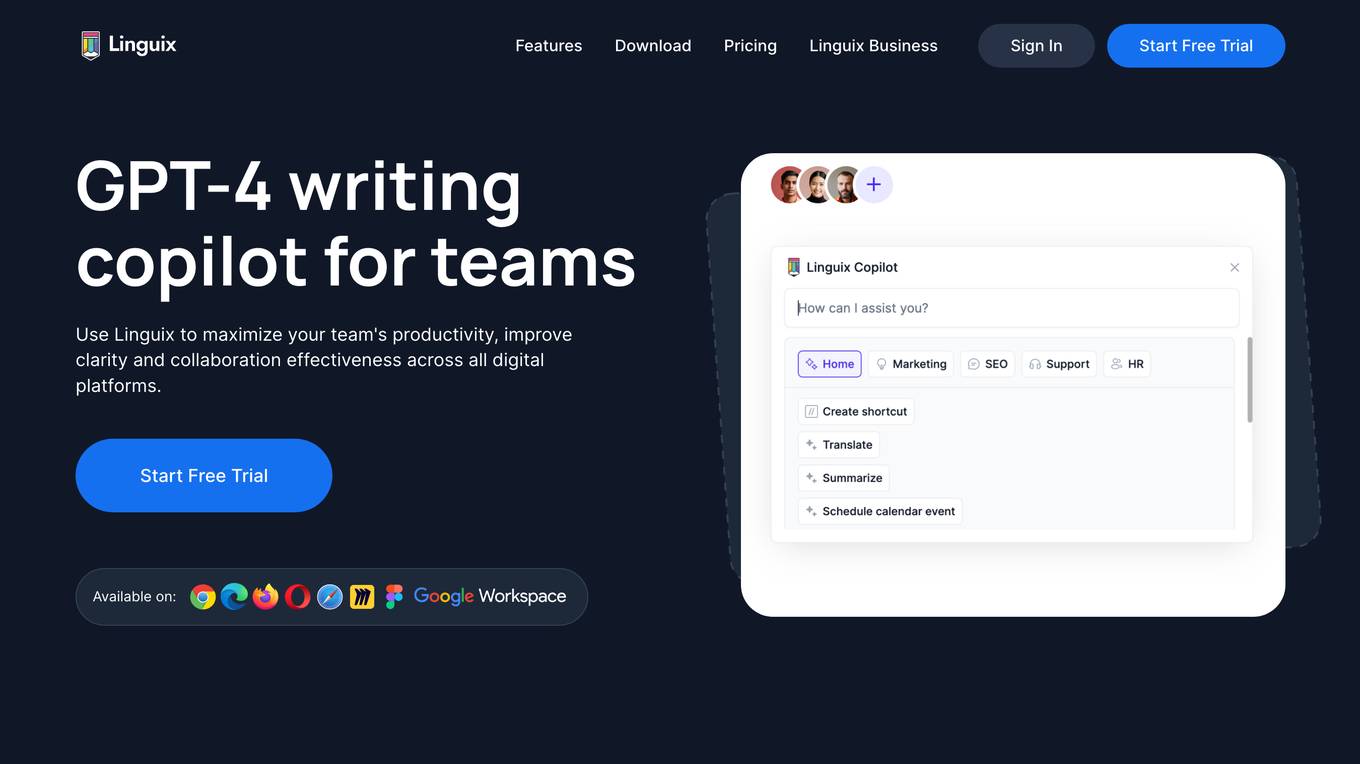
Linguix
Linguix is a GPT-4 writing and productivity copilot for teams. It uses artificial intelligence to improve grammar, spelling, and style, and to help users write more clearly and effectively. Linguix is available as a browser extension and a web editor, and it can be used with a variety of online platforms, including Gmail, Google Docs, and OpenAI. Linguix is trusted by over 310,000 users, including Google Chrome Store Featured App, Edge Store Featured App, Product Hunt Top #1 writing assistant, G2 reviews website Top proofreading tool, and Linguix for Figma Featured App.

yourwAI
yourwAI is an AI-powered platform that matches your personality, skills, passions, and dreams with your ideal career path. By aligning your unique personality, skills, and experiences, we reveal 5 personalized career paths tailored just for you. Our advanced algorithm uses natural language processing (NLP) and personality analysis to match your aspirations with the career that's right for you.
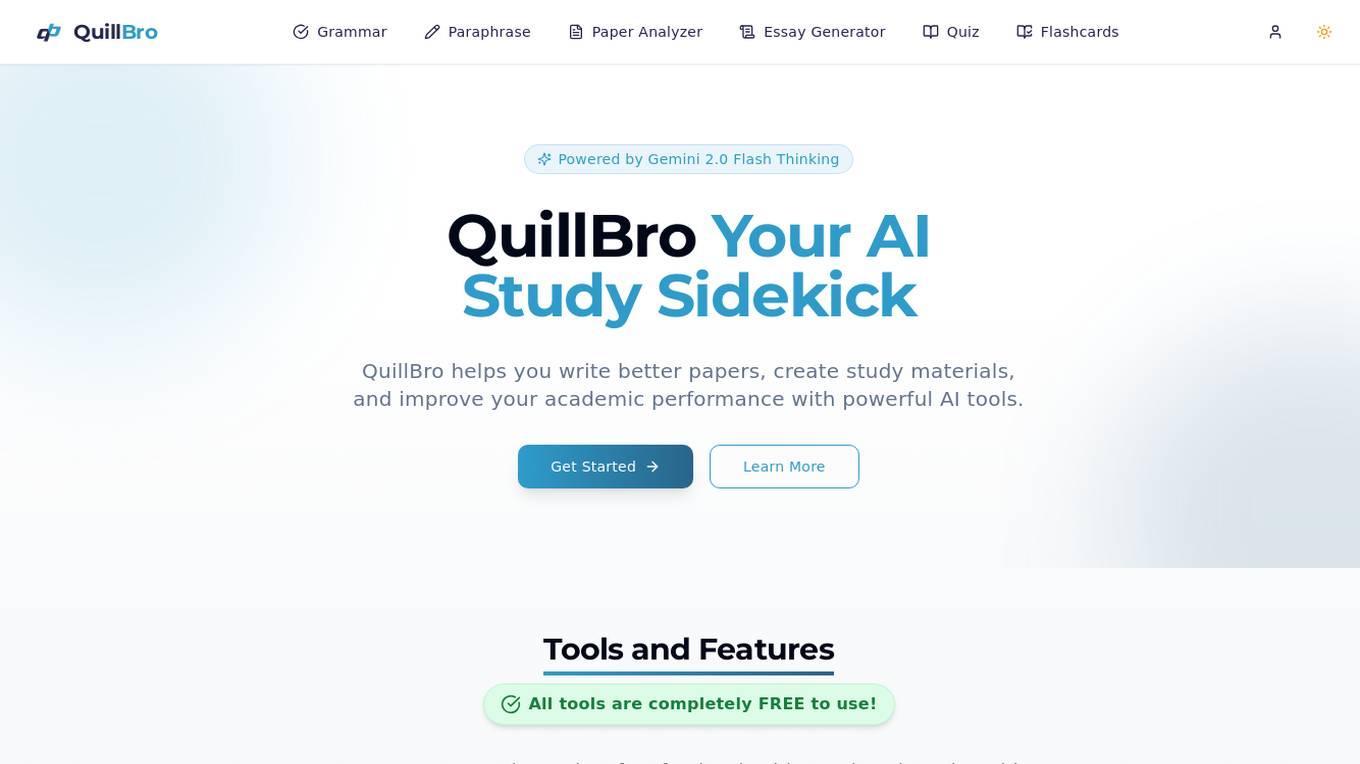
QuillBro
QuillBro is an AI-powered writing and learning tool that assists users in improving their writing skills and enhancing their learning experience. It provides personalized suggestions, grammar corrections, and writing tips to help users create high-quality content. With its advanced AI algorithms, QuillBro offers a user-friendly interface and intuitive features that cater to both students and professionals. Whether you are writing an essay, report, or email, QuillBro is your reliable writing companion that ensures accuracy and clarity in your written communication.
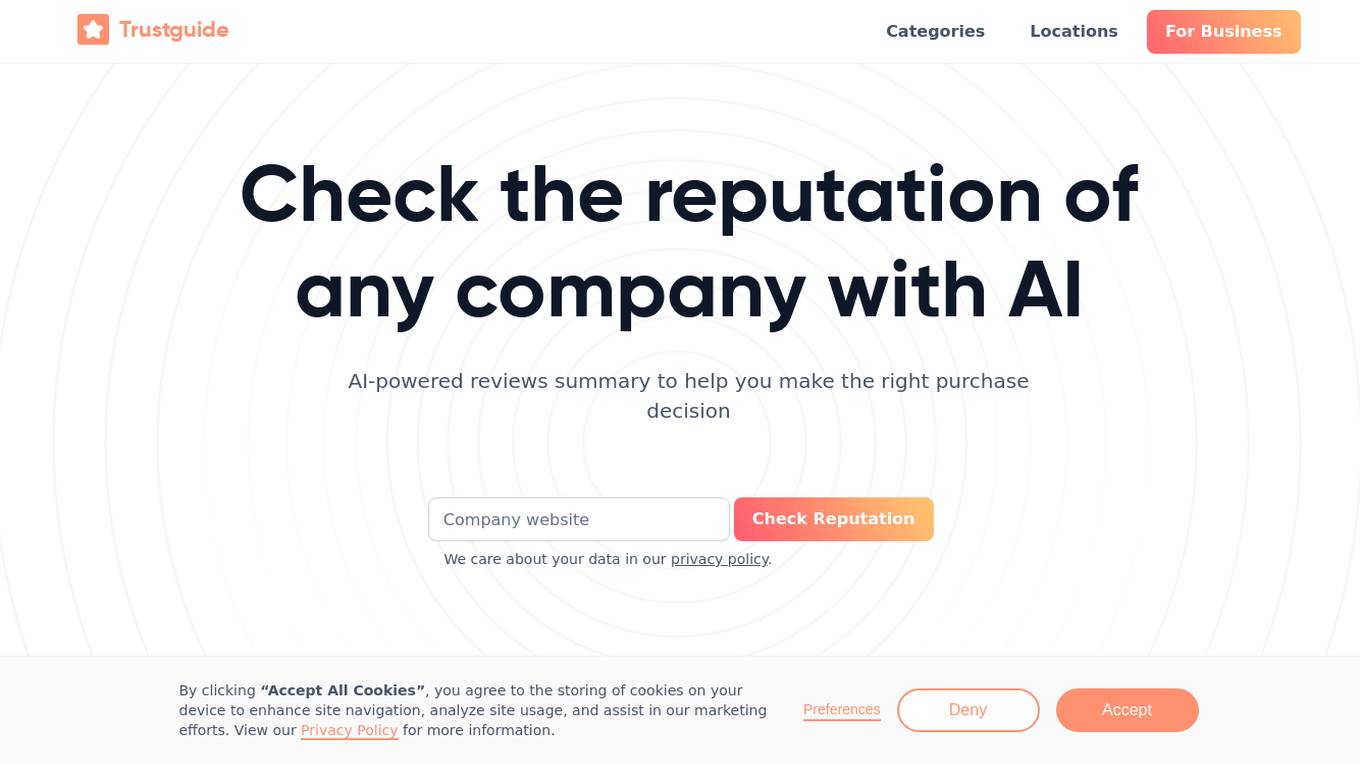
Trustguide
Trustguide is an AI-powered platform that provides unbiased reviews summaries and reputation reports. By leveraging AI technology, Trustguide analyzes public reviews to offer concise and insightful summaries, aiding users in making informed decisions. The platform prioritizes neutrality and accuracy, reflecting diverse opinions from various review platforms to present a fair and balanced view. Trustguide continuously evolves its algorithms to enhance clarity and maintain user trust, serving as a compass in navigating customer feedback.
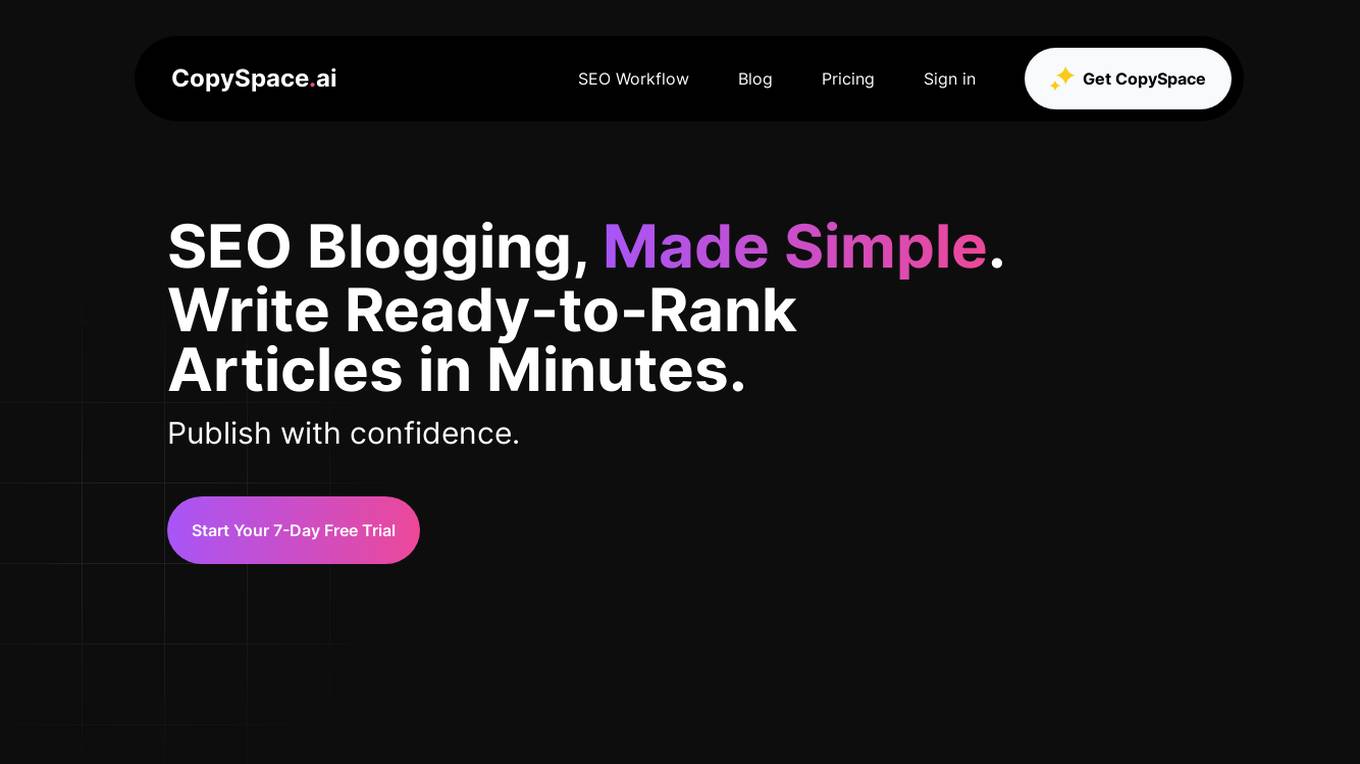
CopySpace.ai
CopySpace.ai is an AI-powered writing assistant that helps users improve their writing skills, enhance productivity, and create high-quality content. The tool utilizes advanced natural language processing algorithms to provide real-time suggestions for grammar, style, and tone. With a user-friendly interface, CopySpace.ai offers a seamless writing experience for professionals, students, and content creators. Whether you are drafting an email, essay, or blog post, CopySpace.ai can assist you in refining your writing and ensuring clarity and coherence.
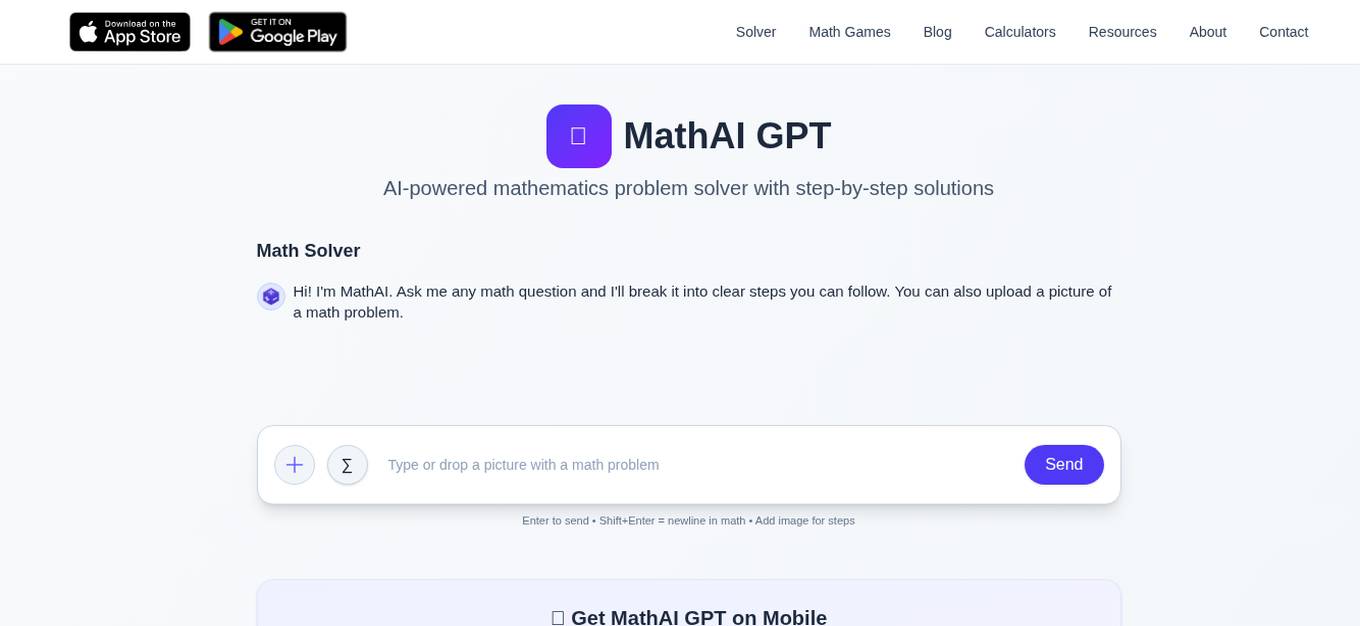
MathAI GPT
MathAI GPT is an online AI math solver and calculator that provides step-by-step solutions for various mathematical problems including algebra, calculus, integrals, differential equations, and more. Users can input questions or upload images to get instant solutions with easy-to-follow explanations. The tool is designed for real homework and exam preparation, offering accuracy and clarity in its responses.
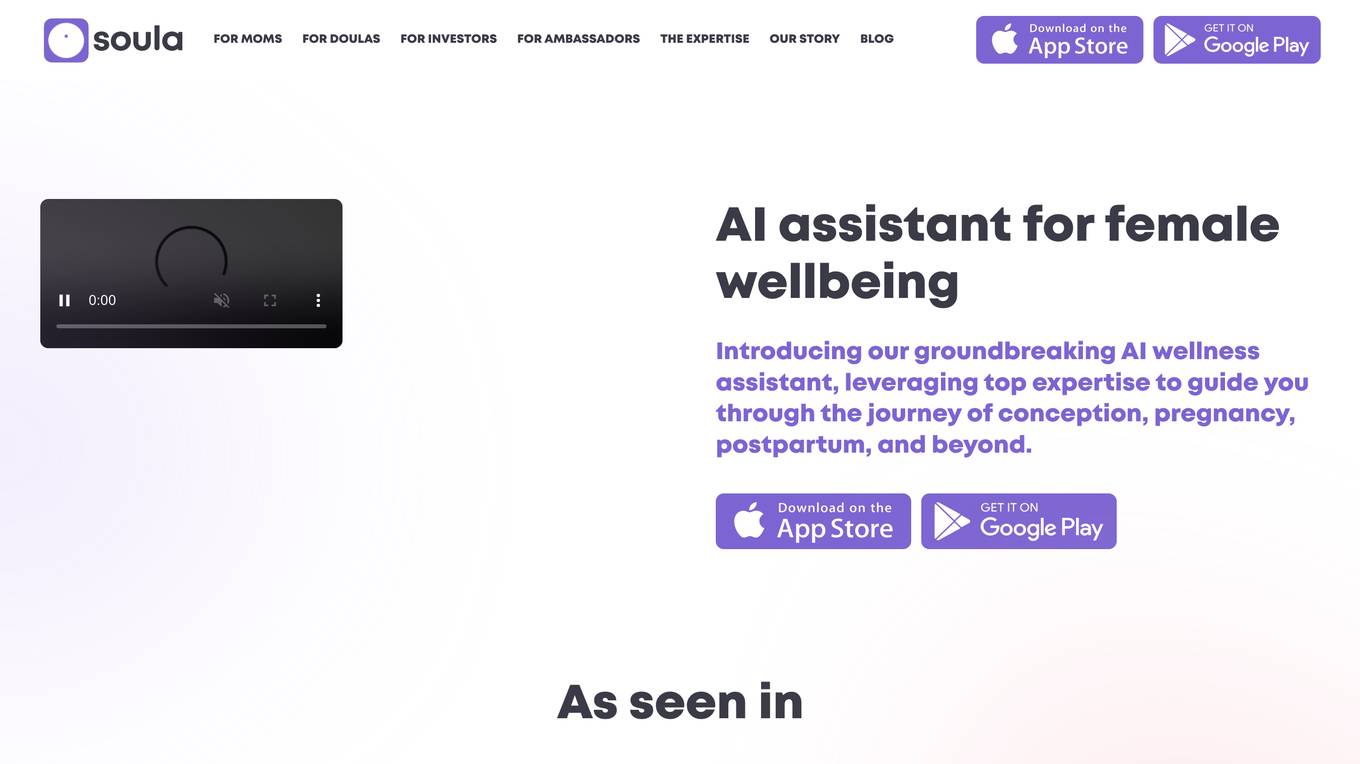
Soula
Soula is an AI application designed for female emotional health, support, and care. It offers 24/7 emotional support that learns, grows, tracks, adapts, and cares for women facing challenges in various aspects of life. Soula is built on neuroscience-backed methods proven to lower stress and boost cognitive flexibility. It provides personalized daily programs, neuroscience-based check-ins, hormonal sync for deeper clarity, and serves as an AI therapist and support partner for women seeking emotional well-being.

Buoy Health
Buoy Health is an AI-powered symptom checker and health information platform. It provides users with personalized health information and guidance based on their symptoms and medical history. Buoy Health's AI technology helps users to identify potential health issues and find the right care options. The platform also offers a variety of health-related content, including articles, videos, and quizzes.
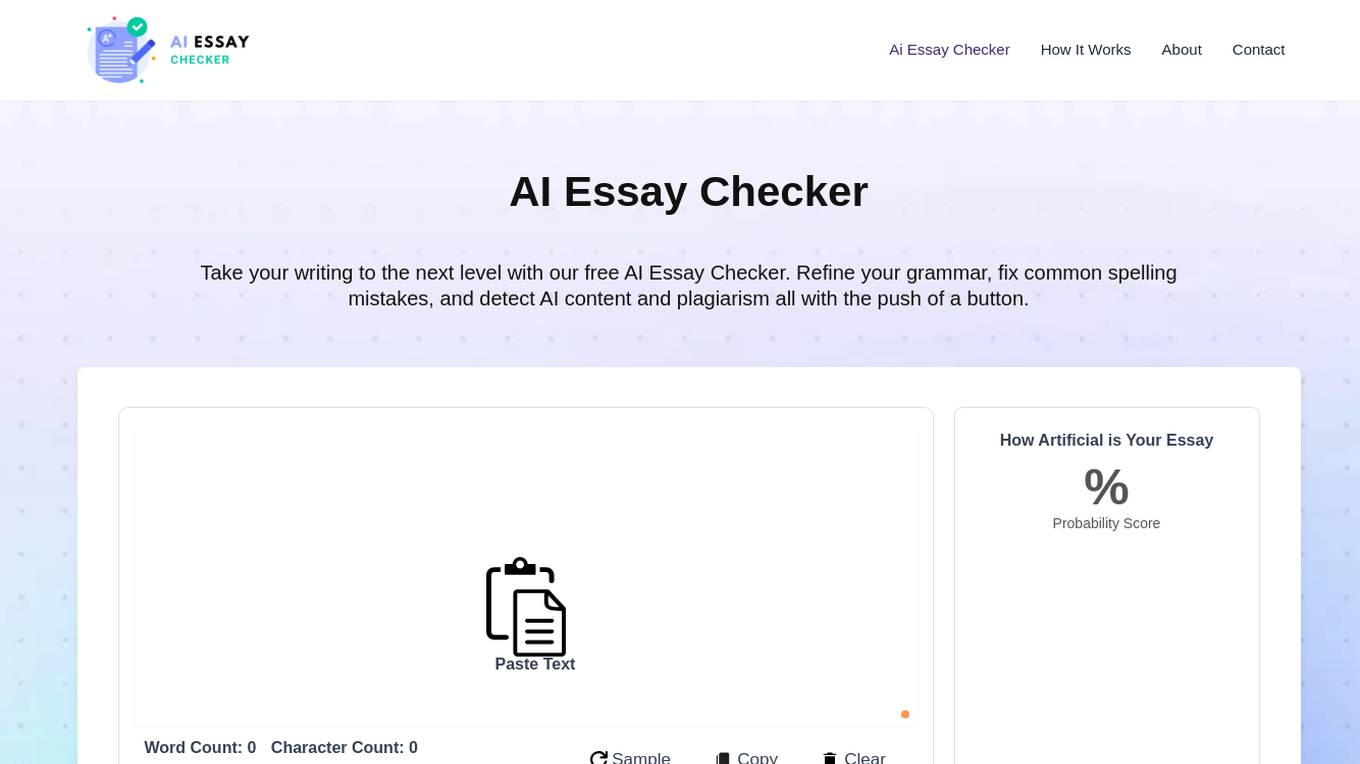
Essay Check
Essay Check is a free AI-powered tool that helps students, teachers, content creators, SEO specialists, and legal experts refine their writing, detect plagiarism, and identify AI-generated content. With its user-friendly interface and advanced algorithms, Essay Check analyzes text to identify grammatical errors, spelling mistakes, instances of plagiarism, and the likelihood that content was written using AI. The tool provides detailed feedback and suggestions to help users improve their writing and ensure its originality and authenticity.
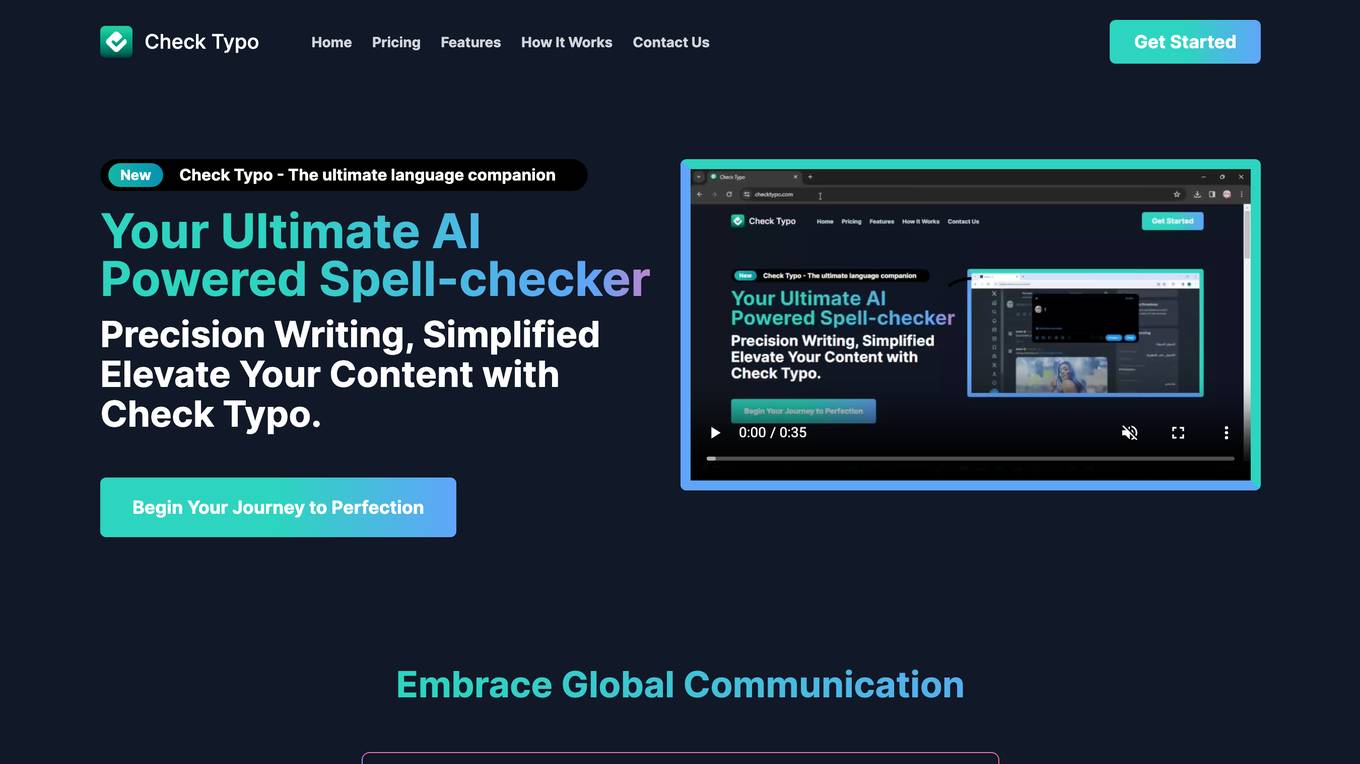
Check Typo
Check Typo is an AI-powered spell-checker tool designed to assist users in eliminating typos and grammatical errors from their writing. It seamlessly integrates within various websites, supports multiple languages, and preserves the original text's style and tone. Ideal for students, professionals, and writers, Check Typo enhances the writing experience with AI-driven precision, making it perfect for error-free emails, professional networking on platforms like LinkedIn, and enhancing social media posts across different platforms.

Copyright Check AI
Copyright Check AI is a service that helps protect brands from legal disputes related to copyright violations on social media. The software automatically detects copyright infringements on social profiles, reducing the risk of costly legal action. It is used by Heads of Marketing and In-House Counsel at top brands to avoid lawsuits and potential damages. The service offers a done-for-you audit to highlight violations, deliver reports, and provide ongoing monitoring to ensure brand protection.
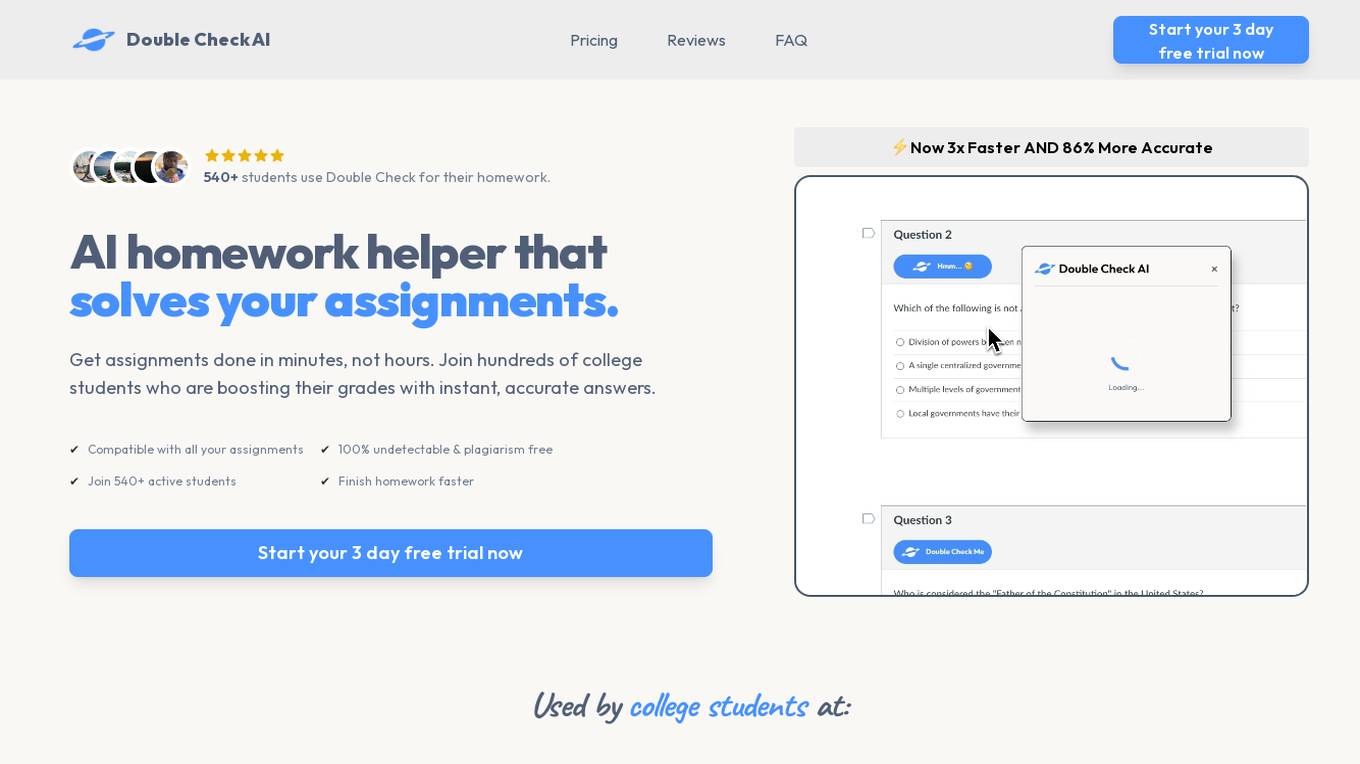
Double Check AI
Double Check AI is an AI homework helper designed to assist college students in completing their assignments quickly and accurately. It offers instant answers, detailed explanations, and advanced recognition capabilities for solving complex problems. The tool is undetectable and plagiarism-free, making it a valuable resource for students looking to boost their grades and save time on homework.
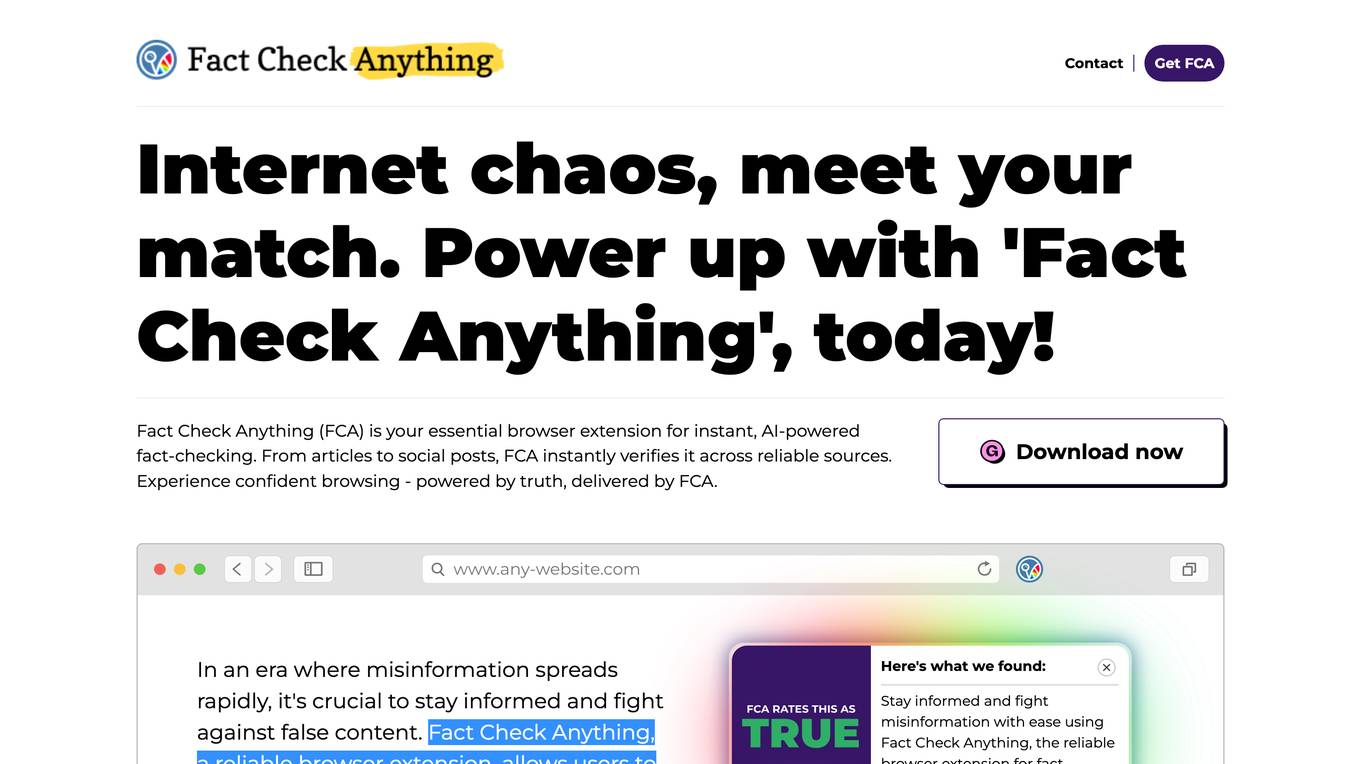
Fact Check Anything
Fact Check Anything (FCA) is a browser extension that allows users to fact-check information on the internet. It uses AI to verify statements and provide users with reliable sources. FCA is available for all browsers using the Chromium engine on Windows or MacOS. It is easy to use and can be used on any website. FCA is a valuable tool for anyone who wants to stay informed and fight against misinformation.

Rizz Check
Rizz Check is a swipe game where users can befriend AI celebrities and ask them on dates. The game is built with Rizz, a library created by boredhead00.
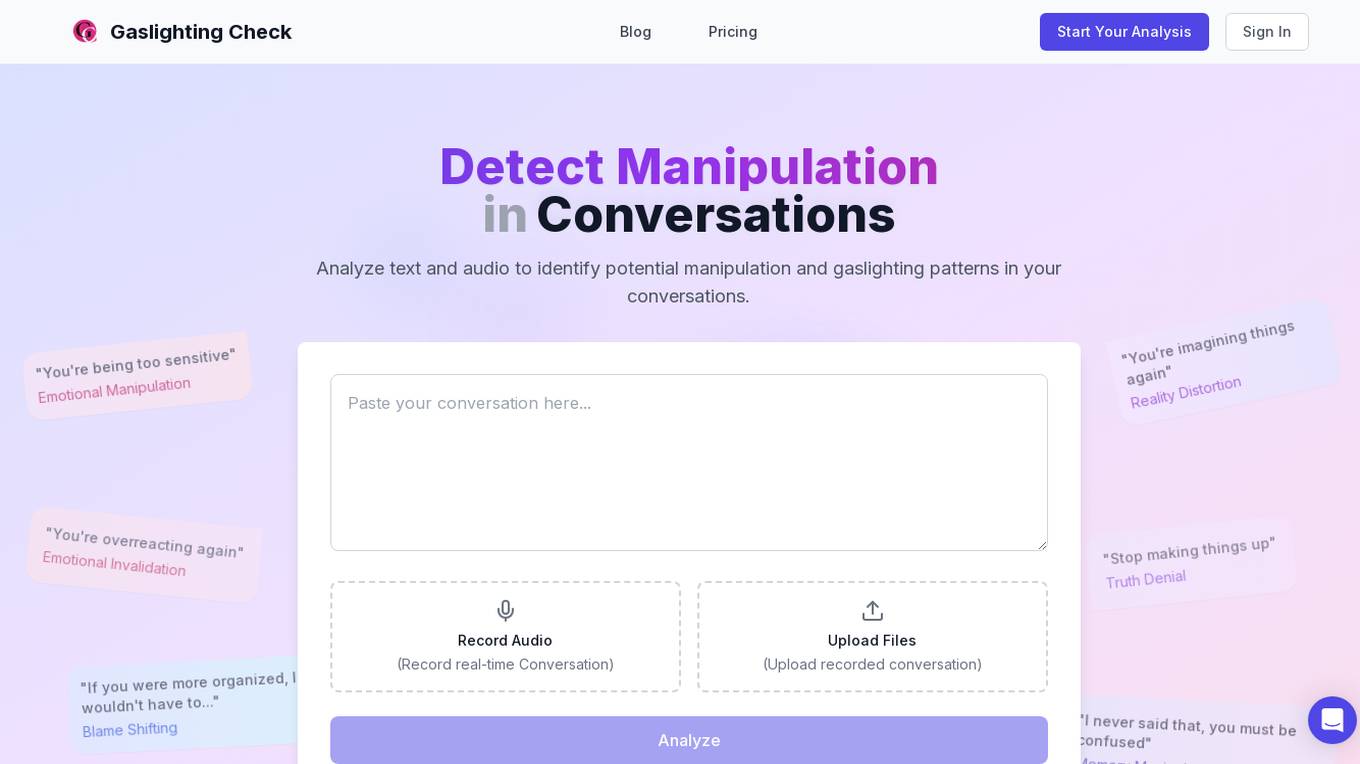
Gaslighting Check
Gaslighting Check is an AI-powered tool designed to help users identify and understand manipulation patterns, particularly gaslighting, in their conversations. The tool offers text and voice analysis capabilities to detect subtle manipulation tactics, providing users with actionable insights and recommendations. Gaslighting Check aims to empower individuals by recognizing and documenting manipulation, ultimately aiding in regaining self-confidence and setting boundaries in various relationships.
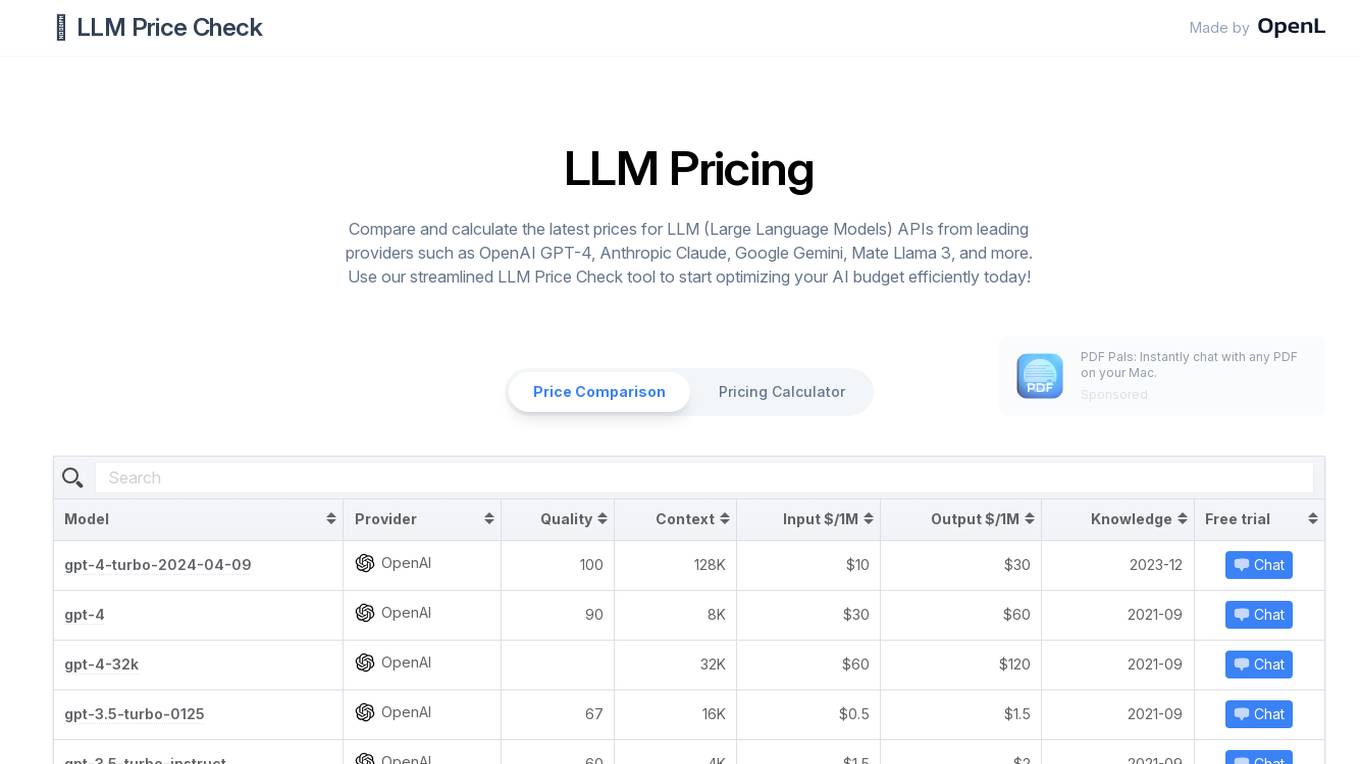
LLM Price Check
LLM Price Check is an AI tool designed to compare and calculate the latest prices for Large Language Models (LLM) APIs from leading providers such as OpenAI, Anthropic, Google, and more. Users can use the streamlined tool to optimize their AI budget efficiently by comparing pricing, sorting by various parameters, and searching for specific models. The tool provides a comprehensive overview of pricing information to help users make informed decisions when selecting an LLM API provider.
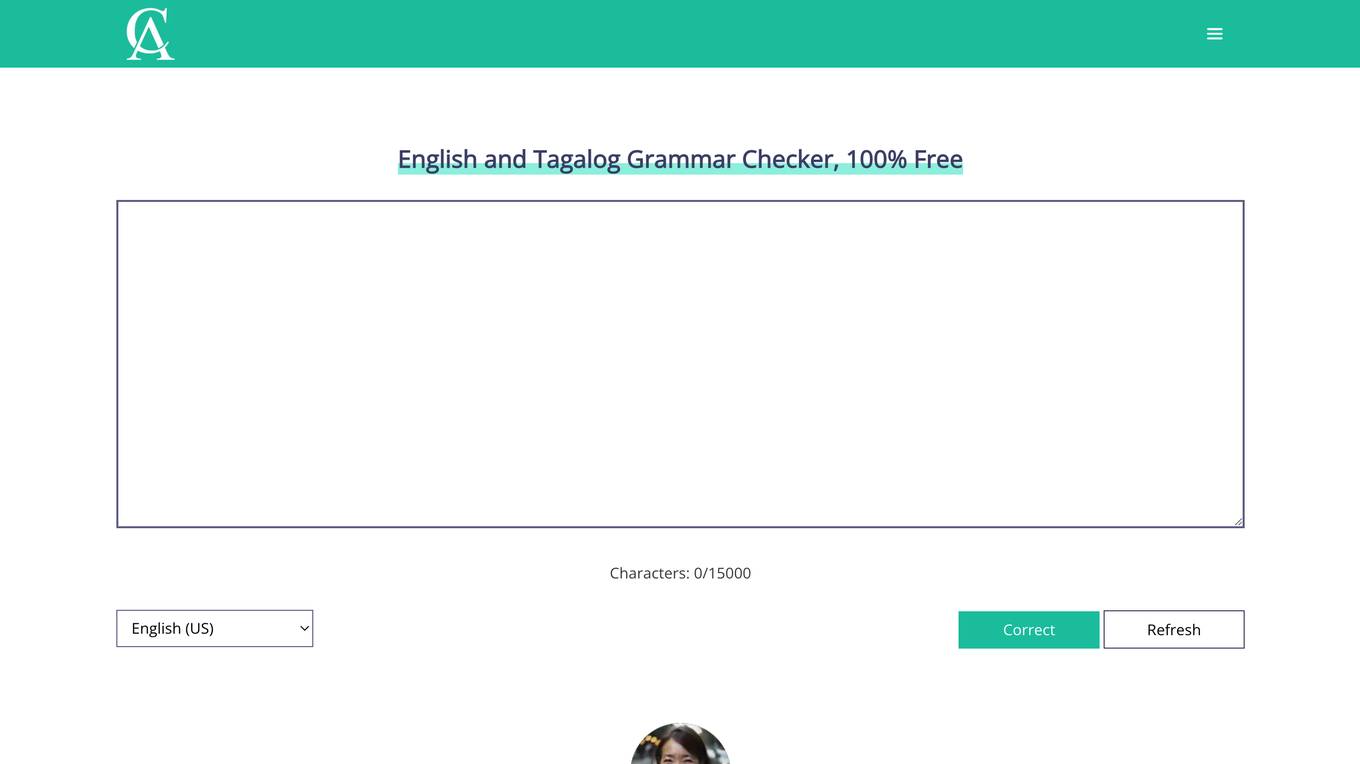
English and Tagalog Grammar Checker
English and Tagalog Grammar Checker is a free online tool that checks your grammar and spelling. It can also help you improve your writing style and avoid common mistakes. The tool is easy to use and can be used by anyone, regardless of their level of English proficiency.
0 - Open Source AI Tools
20 - OpenAI Gpts
Email Proofreader
Copy and paste your email draft to be proofread by GPT without changing their content. Optionally, write 'Verbose = True' on the line before pasting your draft if you would like GPT to explain how it evaluated and changed your text after proofreading.
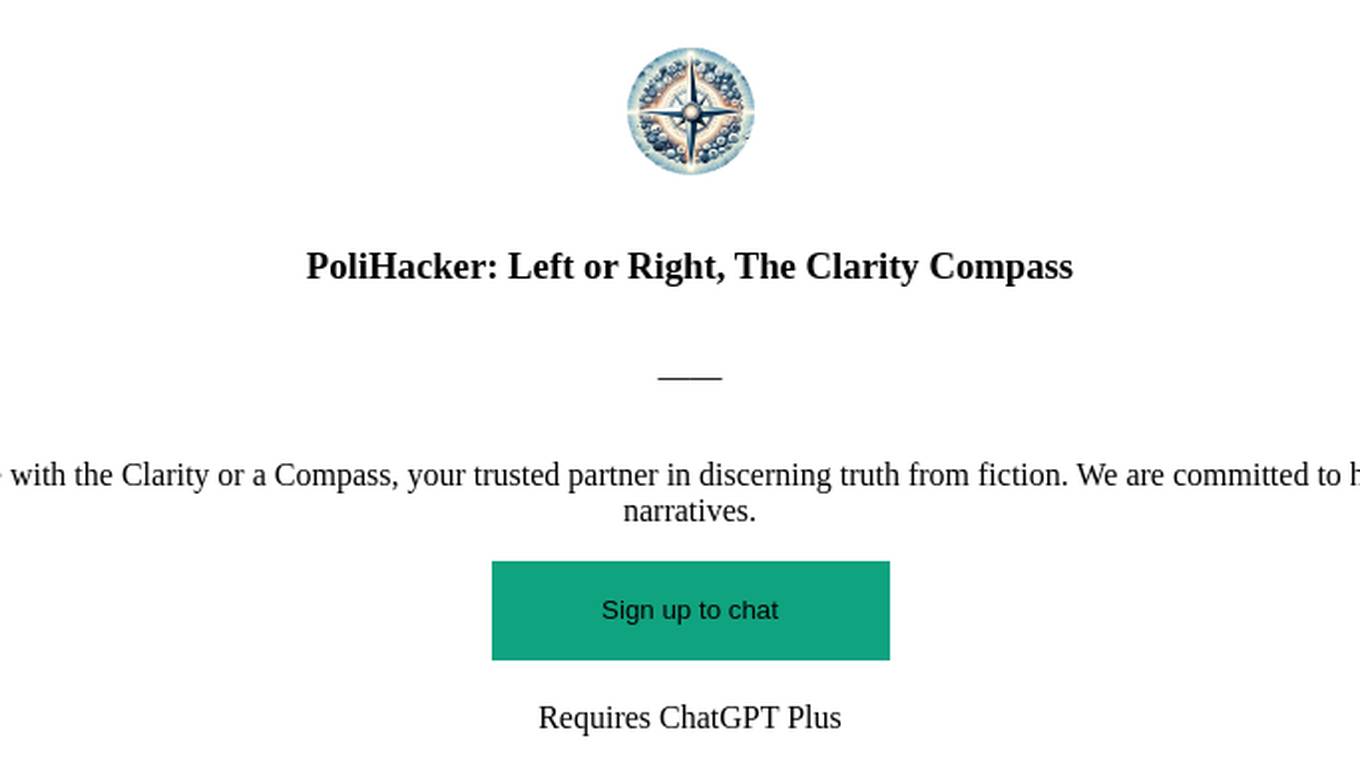
PoliHacker: Left or Right, The Clarity Compass
Navigate the complexities of political discourse with the Clarity or a Compass, your trusted partner in discerning truth from fiction. We are committed to helping you untangle the intricate web of political narratives.
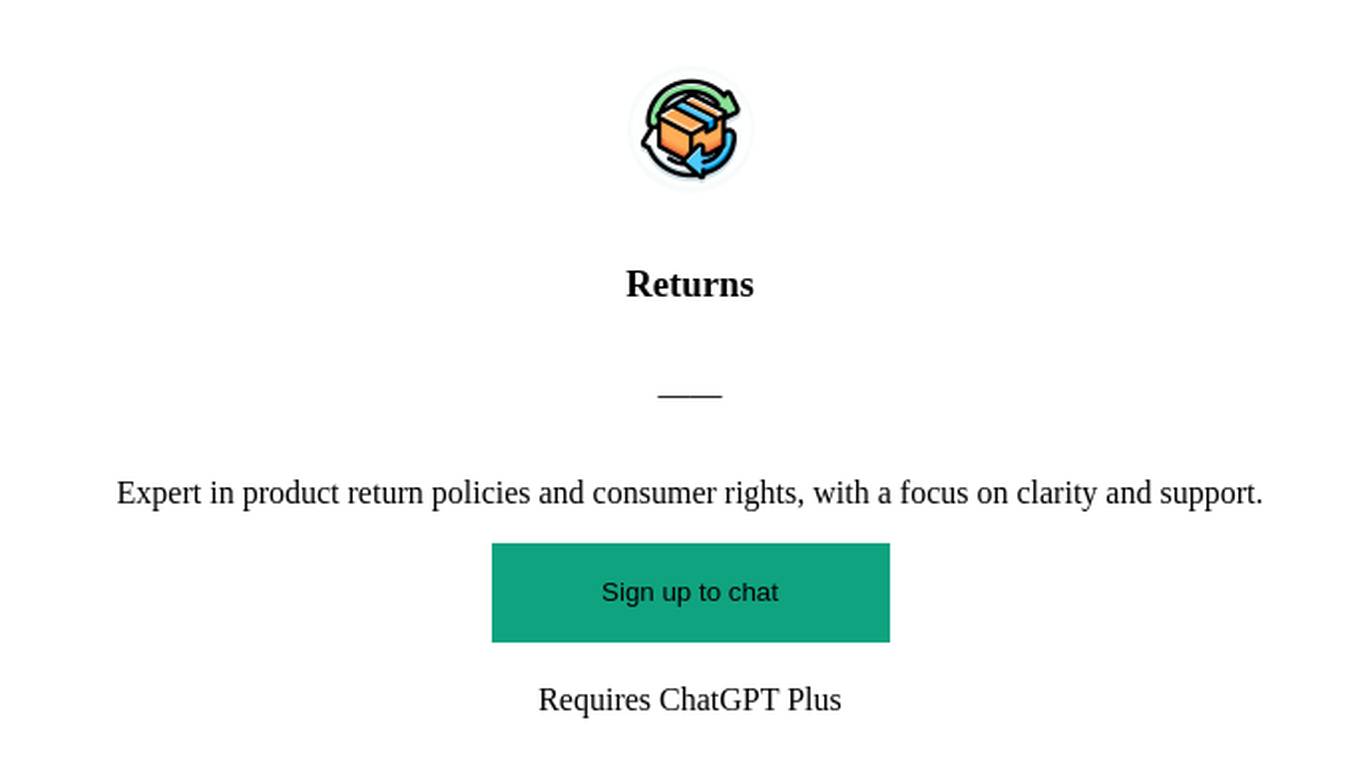
Returns
Expert in product return policies and consumer rights, with a focus on clarity and support.
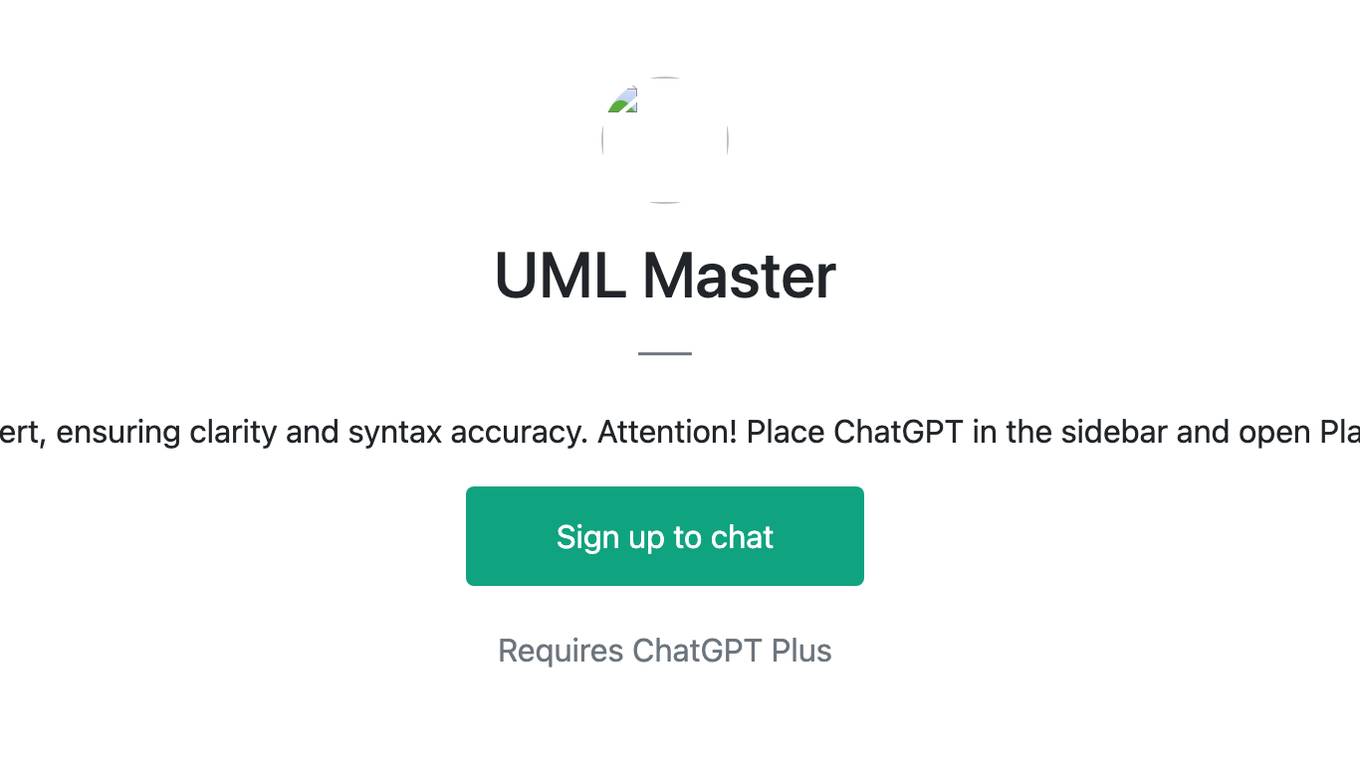
UML Master
Versatile UML diagram expert, ensuring clarity and syntax accuracy. Attention! Place ChatGPT in the sidebar and open PlantUML for better results.
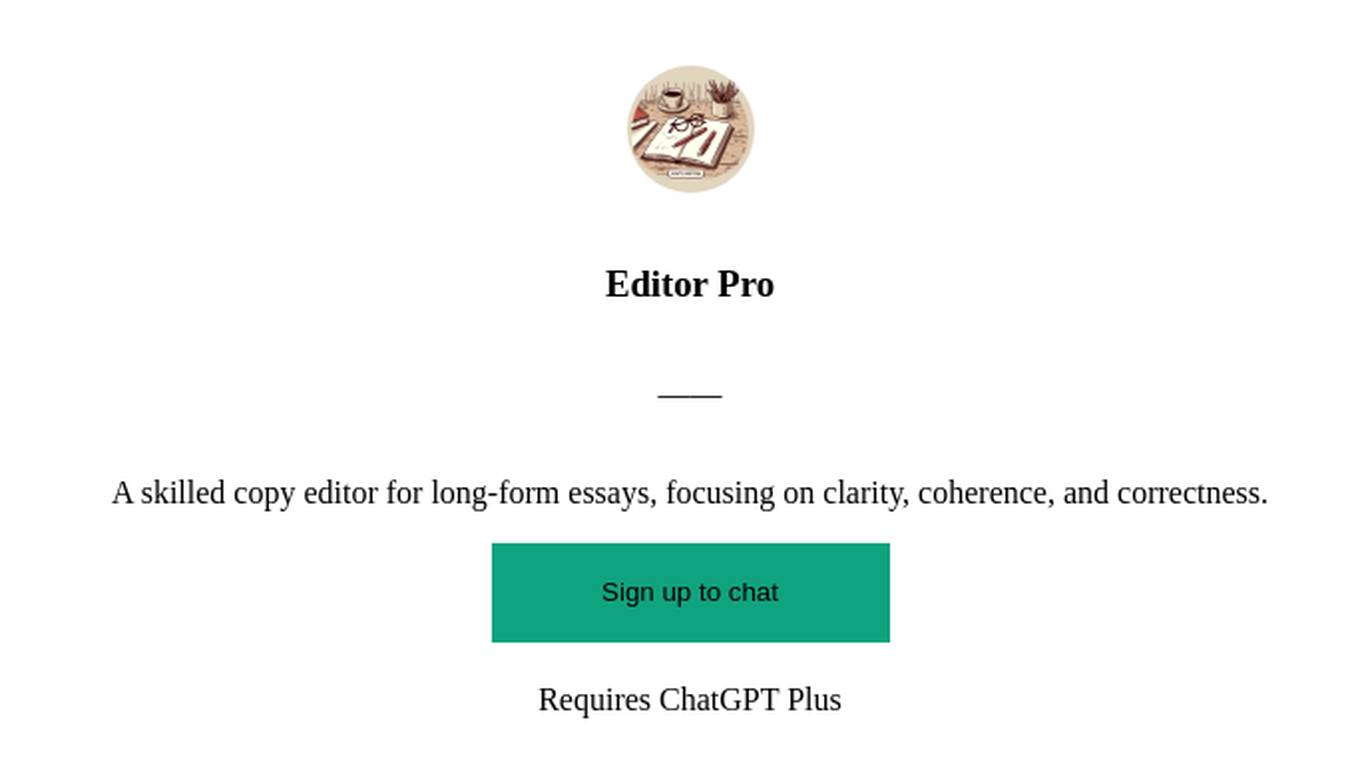
Editor Pro
A skilled copy editor for long-form essays, focusing on clarity, coherence, and correctness.
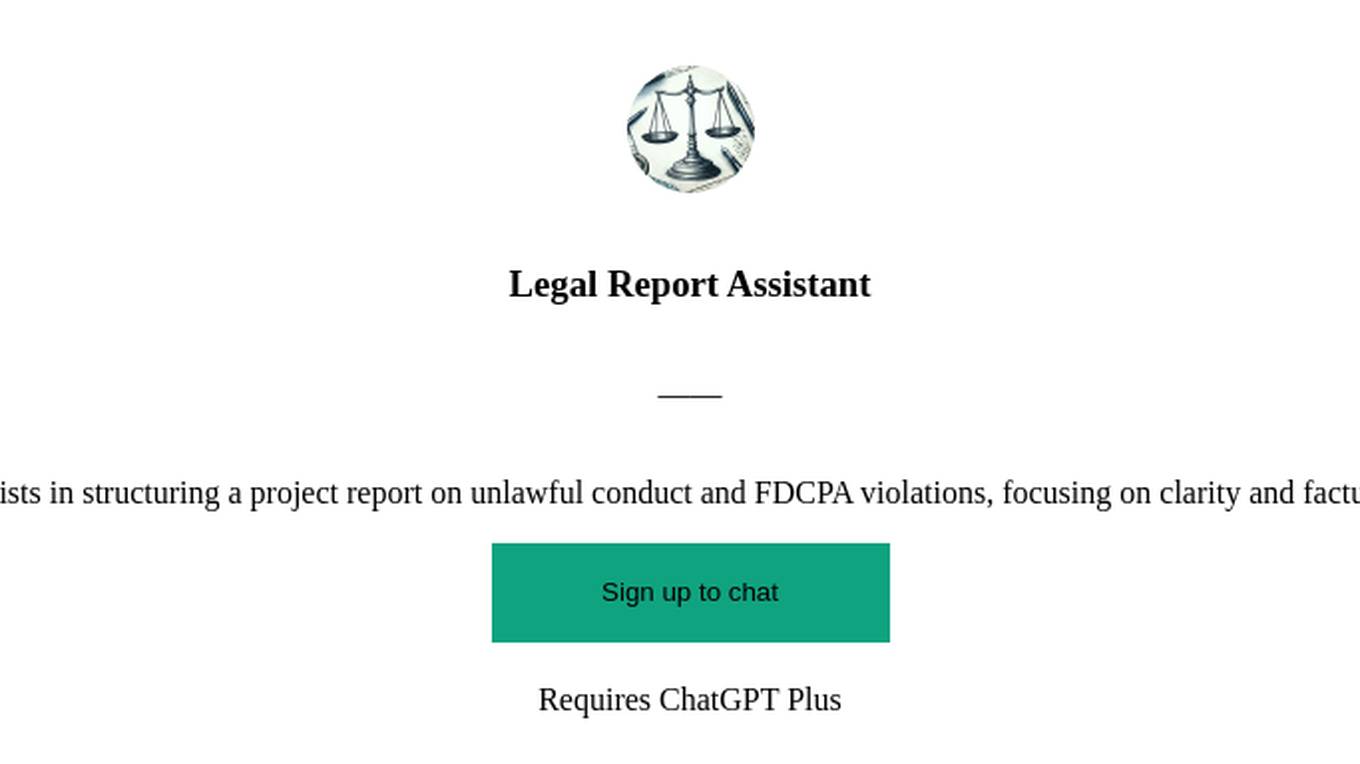
Legal Report Assistant
Assists in structuring a project report on unlawful conduct and FDCPA violations, focusing on clarity and factuality.
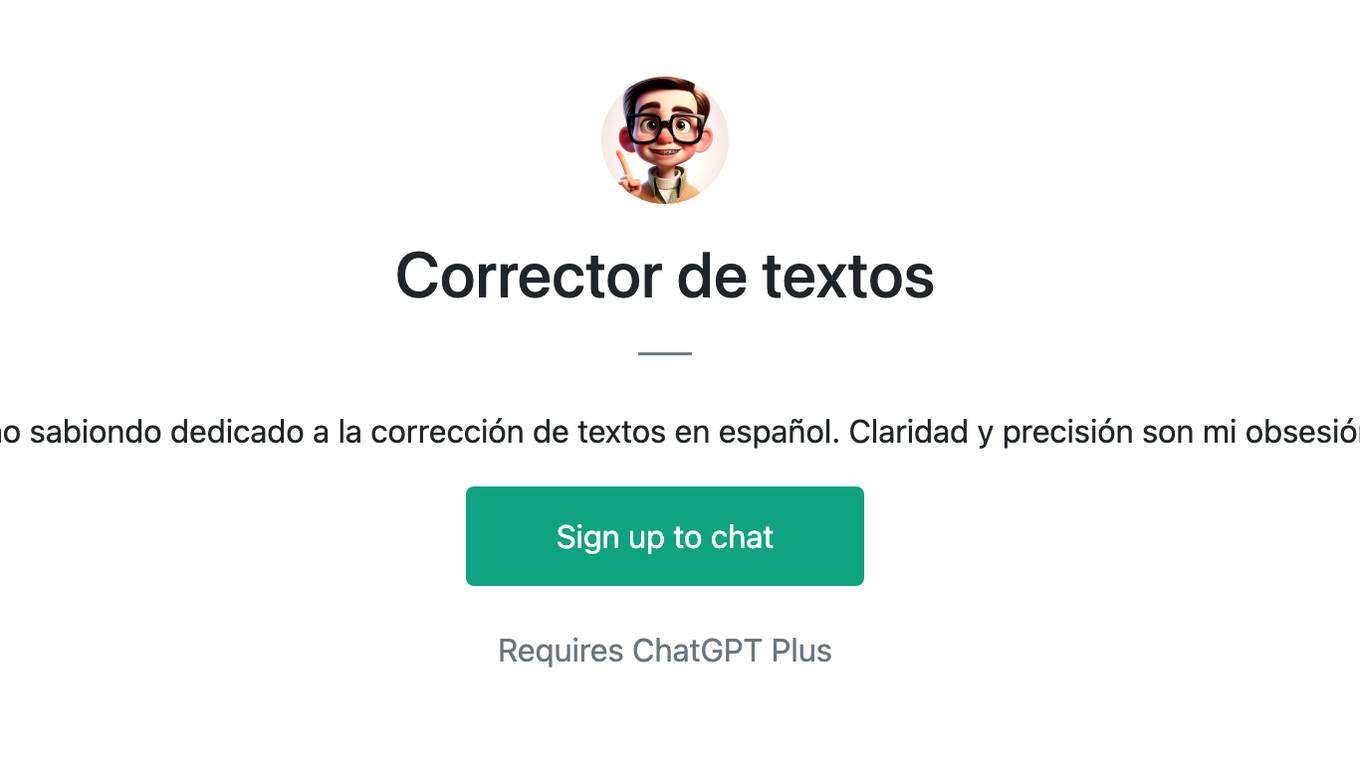
Corrector de textos
Niño sabiondo dedicado a la corrección de textos en español. Claridad y precisión son mi obsesión
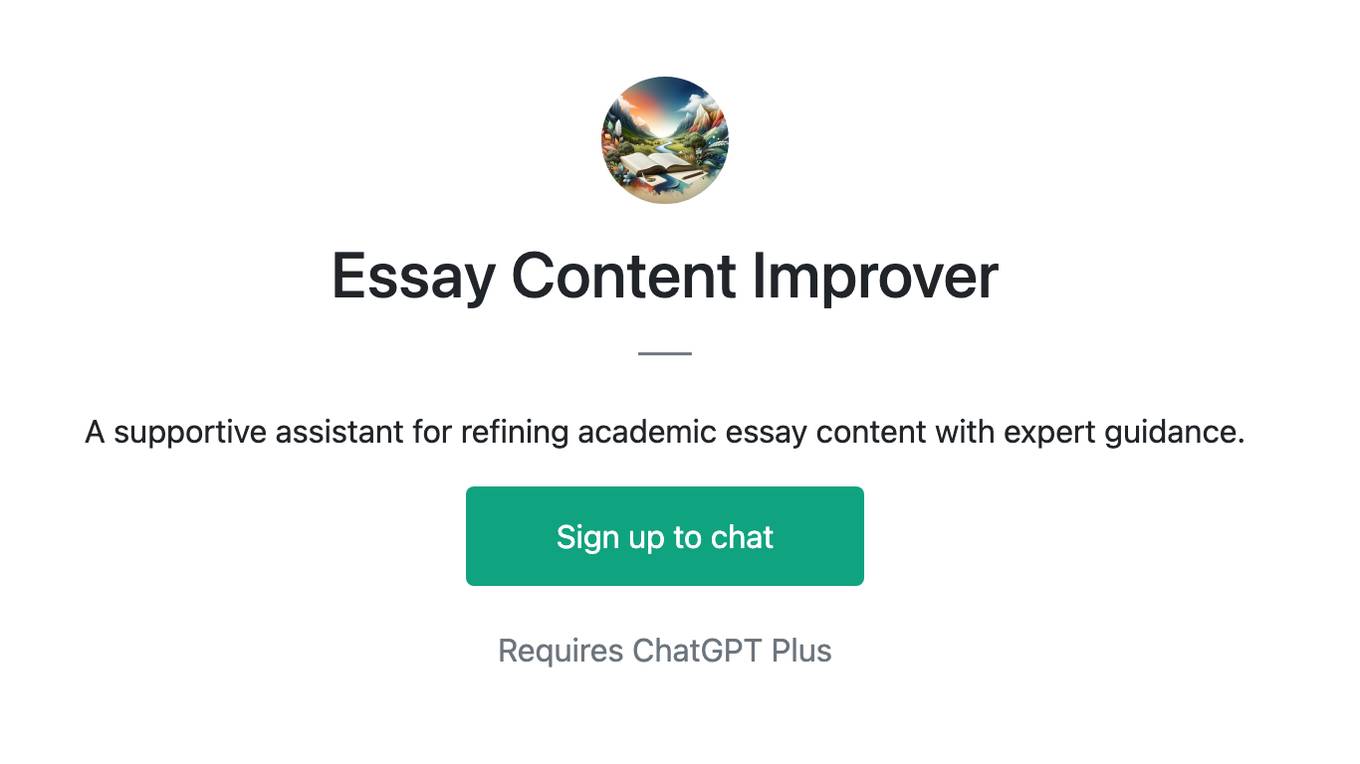
Essay Content Improver
A supportive assistant for refining academic essay content with expert guidance.
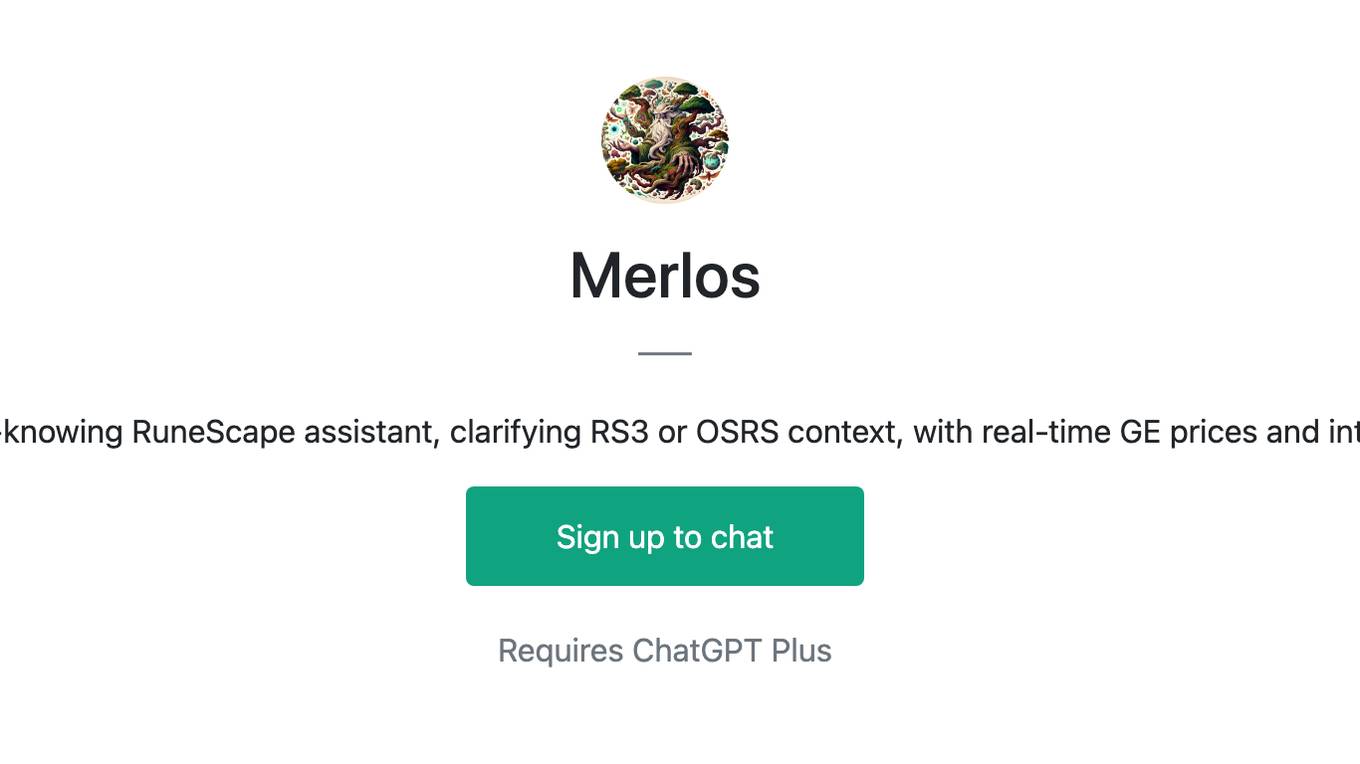
Merlos
Merlos is an all-knowing RuneScape assistant, clarifying RS3 or OSRS context, with real-time GE prices and internet search.
